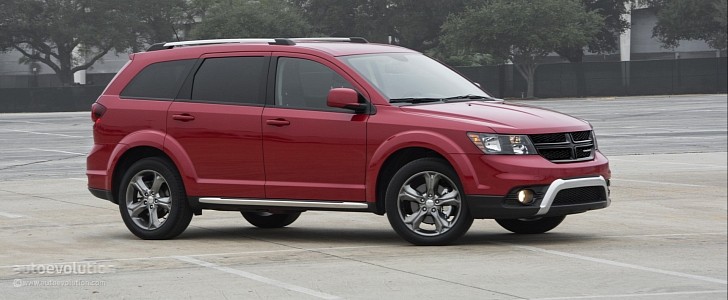Back in July 2017, no fewer than 42,231 crossovers were recalled by FCA US LLC for a mechanical issue caused by the crankshaft or camshaft position sensors. This blunder goes back to July 2016, when Toluca Assembly Plant identified spread terminals on the crankshaft connector.
Produced by Delphi Packard Electric Systems in Mexico, the crankshaft and camshaft position sensors equip both 2.0- and 2.4-liter engines used in the JC Dodge Journey, MK Jeep Compass, and MK Jeep Patriot. The supplier confirmed that open terminals on retained connectors traced to six reels of terminals with production dates of April 26th, 27th, 28th, and 30th, 2015.
Fast forward to September 2016, and that’s when FCA US Supplier Quality Engineering confirmed the root cause for engine stalling to be associated with a newly added blanking tool. Vehicles equipped with faulty sensors were produced from May 2016 through July 2016 for model year 2016.
The problem hasn’t gone away, though. The Office of Defects Investigation has received no fewer than 127 complaints where consumers allege crankshaft or camshaft failures on vehicles that weren’t included in the recall. The vehicles in question are Journeys, Compasses, and Patriots that were produced for model year 2016 with the aforementioned engines.
The investigation may lead to the recall of 289,067 vehicles, according to estimates from the National Highway Traffic Safety Administration, which is a lot of money that FCA US LLC could have alternately used to improve quality control and assurance. All of the 127 complaints mentioned earlier were filed with the federal watchdog following the receipt of the recall.
The recall query has been opened to further asses the scope, frequency, and safety consequences of the defect. As described in the recall, intermittent operation of the crankshaft or camshaft sensors may increase the risk of a crash, thus increasing the risk of injury to the driver and passengers.
Fast forward to September 2016, and that’s when FCA US Supplier Quality Engineering confirmed the root cause for engine stalling to be associated with a newly added blanking tool. Vehicles equipped with faulty sensors were produced from May 2016 through July 2016 for model year 2016.
The problem hasn’t gone away, though. The Office of Defects Investigation has received no fewer than 127 complaints where consumers allege crankshaft or camshaft failures on vehicles that weren’t included in the recall. The vehicles in question are Journeys, Compasses, and Patriots that were produced for model year 2016 with the aforementioned engines.
The investigation may lead to the recall of 289,067 vehicles, according to estimates from the National Highway Traffic Safety Administration, which is a lot of money that FCA US LLC could have alternately used to improve quality control and assurance. All of the 127 complaints mentioned earlier were filed with the federal watchdog following the receipt of the recall.
The recall query has been opened to further asses the scope, frequency, and safety consequences of the defect. As described in the recall, intermittent operation of the crankshaft or camshaft sensors may increase the risk of a crash, thus increasing the risk of injury to the driver and passengers.








